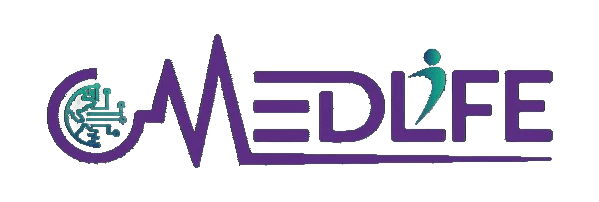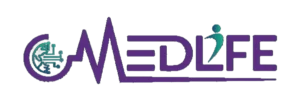In the intricate and fast-paced world of healthcare, accurate documentation serves as the foundation for ensuring financial integrity, patient safety, and regulatory compliance. Medical billing, a critical aspect of healthcare administration, depends heavily on the precision and completeness of documentation. Without it, the entire revenue cycle management process falters, leading to delayed reimbursements, claim denials, and potential legal consequences.
This comprehensive blog will explore the pivotal role accurate documentation plays in medical billing, its far-reaching impacts, best practices, common challenges, and innovative solutions that empower healthcare organizations to thrive.
Why Accurate Documentation Matters in Medical Billing
1. Ensuring Regulatory Compliance
Accurate documentation is essential to meeting strict guidelines set by regulatory bodies like the Centers for Medicare and Medicaid Services (CMS) and the Health Insurance Portability and Accountability Act (HIPAA). These regulations demand meticulous records to ensure that services billed are medically necessary and appropriately coded. Non-compliance can lead to audits, penalties, and legal repercussions that damage the reputation and financial stability of healthcare practices.
2. Reducing Claim Denials and Delays
Claim denials often stem from incomplete or inaccurate documentation. When critical details such as diagnoses, procedures, or patient information are missing or inconsistent, insurance payers are likely to reject claims or request additional information. Accurate documentation minimizes these risks, facilitating smoother reimbursement processes and quicker payment cycles.
3. Enhancing Patient Safety
Beyond financial considerations, precise documentation ensures that healthcare providers have a clear and complete record of a patient’s medical history, including past treatments, medications, and allergies. This clarity reduces the risk of medical errors, improves continuity of care, and enhances patient outcomes.
4. Supporting Accurate Medical Coding
Medical coding translates healthcare services into standardized codes used for billing. Accurate documentation provides the foundation for selecting appropriate codes such as ICD-10 for diagnoses and CPT for procedures. Misaligned or incomplete documentation can lead to coding errors, resulting in incorrect billing and potential revenue loss.
5. Optimizing Revenue Cycle Management (RCM)
Comprehensive documentation streamlines the entire RCM process, from claim submission to final reimbursement. By capturing every service rendered with precision, healthcare organizations can reduce revenue leakage, expedite payments, and maintain a healthy cash flow.
Best Practices for Accurate Documentation in Medical Billing
1. Capture Detailed Patient Information
Begin every patient encounter by thoroughly documenting demographics, medical history, and insurance details. This foundational information ensures accurate billing and facilitates continuity of care.
2. Align Documentation with Medical Coding
Maintain consistency between medical records and the assigned codes. Include all relevant details about diagnoses, treatments, and procedures to support the selected codes and justify claims.
3. Use Standardized Templates and Forms
Implement standardized templates for clinical documentation to promote consistency and reduce the likelihood of omissions. Templates can guide providers in capturing all necessary information.
4. Document in Real-Time
Record patient encounters promptly to minimize the risk of errors or omissions. Real-time documentation ensures that details are fresh and accurate, reducing discrepancies.
5. Provide Training and Education
Regularly train healthcare staff on documentation standards, coding updates, and regulatory requirements. Continuous education empowers teams to maintain high standards of accuracy.
6. Leverage Technology
Adopt electronic health records (EHR) systems and billing software to streamline documentation. Advanced tools with built-in prompts and validation features help ensure completeness and accuracy.
7. Regularly Audit and Review Documentation
Conduct routine audits to identify gaps or inconsistencies in medical records. Proactive reviews can prevent errors from escalating into claim denials or compliance issues.
Challenges in Documentation and How to Overcome Them
1. Incomplete Documentation
Solution: Use comprehensive templates and checklists to guide providers in capturing all required details. Regular feedback loops can also help address recurring gaps.
2. Lack of Standardization
Solution: Establish organization-wide documentation protocols and ensure consistent implementation across all departments.
3. Time Constraints
Solution: Encourage real-time documentation during or immediately after patient encounters. Utilize voice-to-text technology to reduce the burden on providers.
4. Insufficient Training
Solution: Invest in ongoing education programs covering documentation best practices, coding updates, and compliance standards.
5. Technology Integration Issues
Solution: Choose EHR and billing systems that integrate seamlessly with existing workflows. Provide training to ensure staff can use these tools effectively.
The Role of Outsourcing in Accurate Documentation
Outsourcing medical billing and documentation to specialized providers can alleviate many of the challenges healthcare organizations face. Outsourcing partners bring expertise, advanced technology, and dedicated resources to ensure high standards of accuracy and compliance.
Benefits of Outsourcing:
- Expertise in Medical Coding and Billing: Specialized teams stay updated on the latest coding and regulatory changes, ensuring accuracy and compliance.
- Reduced Administrative Burden: Free up internal staff to focus on patient care by delegating documentation and billing tasks.
- Improved Revenue Cycle Efficiency: Professional outsourcing services optimize documentation and coding, leading to faster reimbursements and reduced claim denials.
The Future of Documentation in Medical Billing
1. AI-Powered Documentation
Artificial intelligence is revolutionizing medical billing services by automating routine tasks and enhancing accuracy. AI-powered tools can identify documentation gaps, suggest appropriate codes, and flag potential errors in real-time.
2. Interoperability in Health IT
Interoperable systems allow seamless sharing of patient data across platforms, reducing duplication and ensuring consistent documentation. This connectivity improves both billing accuracy and patient care.
3. Data-Driven Insights
Accurate documentation contributes to robust datasets that healthcare providers can analyze to identify trends, optimize resource allocation, and improve overall efficiency.
Conclusion
Accurate documentation is the cornerstone of effective medical billing and quality healthcare. It ensures regulatory compliance, enhances patient safety, supports efficient revenue cycle management, and fosters trust between providers and patients. By adopting best practices, leveraging technology, and considering outsourcing, healthcare organizations can overcome documentation challenges and achieve operational excellence.
At Medlife, we specialize in helping healthcare providers navigate the complexities of medical billing with precision and confidence. Our tailored solutions empower organizations to focus on what matters most: delivering exceptional patient care.
Ready to optimize your medical billing processes? Contact Us now! and take the first step toward streamlined documentation and improved revenue!


